The US ‘Stargate’ initiative is worrying European companies: ChatGPT developer OpenAI and major technology partners want to invest around 479 billion euros in new data centres for artificial intelligence. At the same time, Donald Trump has cancelled almost all rules for AI developers in the US – while in the EU, the AI Act is coming into force, bringing rules and bans. How can European start-ups remain competitive under these circumstances? One approach is a programme that the EU Commission launched a few years ago: It gives start-ups access to European supercomputers.

Czech Supercomputer Karolina, part of the programme to boost European Startups.
Belgian Startup Puxano is based in an industrial estate in Ghent, Belgium, employing a total of 14 people. Unlike many start-ups, it only relies on venture capital funds to a limited extent, preferring to rely on traditional subsidies from the Flanders region and the EU. The start-up specialises in biotechnology, more precisely AI-driven protein design and protein engineering.
Wouter van Putte, CEO and Founder of Puxano:
We provide services to pharma and biotech, and that’s all with the focus on structural biology for proteins, so proteins are an essential part of everybody’s body. They are essential for drug development, for industrial applications. And we try to make, provide the structures of those proteins to those companies so they can make better therapeutics.
The goal of the company, put very simply, is protein folding – predicting the structure of complex protein molecules. For this, the start-up uses machine learning and artificial intelligence.
(This is the web version of a report I made for news programme arte journal in February 2025. Here’s the report:)
Joss van Doorselaere, Director for IA, Puxano:
So typically an AI model works in two phases. First, you you make sure it learns stuff and then you can use this trained model, the model that has all these things that you fed into its available and then you can use it to predict stuff. […] So if I were just to use my laptop, it would probably melt running these models. So they’re quite intensive to run.
This however requires a lot of computing power. Puxano can use a certain amount of hours per month on a high-performance computer with the beautiful name Karolina.
She is located in Ostrava in the Czech Republic at the IT4Innovations National Supercomputing Center and is part of EuroHPC, a network of European supercomputers set up by the EU Commission.

Map of the EuroHPC member countries
Vit Vondrak, CEO, IT4Innovations National Supercomputing Center:
EuroHPC was created to, consolidate the resources and just invest into the development of the high performance computing and to develop also those software tools, new algorithms and support communities in use over such a critical and important infrastructure.
EuroHPC is a public-private partnership and is co-funded by the EU:
Vit Vondrak: 65 %, so approximately €10 million, was funded by the, from Czech national public resources. And an additional 35%, came from the European money via the EuroHPC joint undertaking. So that’s approximately €5 million. [The same goes for] distributed computing time: 65 % go goes to Czech national researchers and industrial partners, and 35 % goes to EuroHPC communities.
The power of Karolina is a definite advantage for Puxano:
Joss van Doorselaere: You can distribute the working load over many nodes (server units on the supercomputer) that can do the computation on Karolina, and we have many of those available. And so if we can have the model calculate over there, it goes much faster. I means typically the more nodes you use, the less time it takes. And that’s true for predicting proteins and even more for training, because the training takes a long, long, long time.
And, as the CEO of the supercomputer centre points out, Europeans will need this boost:
Vit Vondrak:
Otherwise there is a threat that Europe will be behind the rest of the world, mainly the US, and for example Asia, because they are investing also to very, very significant amounts of money into high performance computing technologies, which is essential not only for the numerical simulation but also for other workloads like artificial intelligence, data processing and so on.
 /e/ uses
/e/ uses 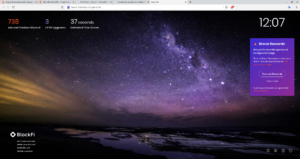

 to select “Delete cookies and site data when Firefox is closed”.
to select “Delete cookies and site data when Firefox is closed”.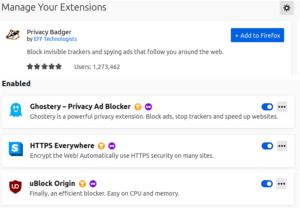



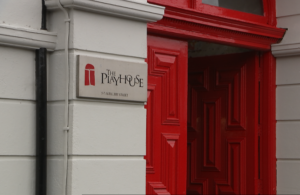

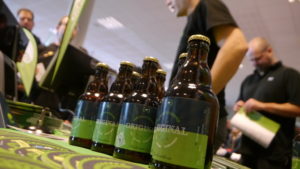 Interviews at the Free and Open Source developers meeting FOSDEM 2015 in Brussels.
Interviews at the Free and Open Source developers meeting FOSDEM 2015 in Brussels.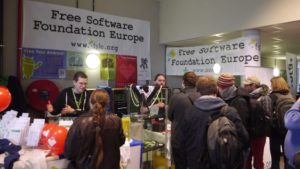 Mathias Kirschner, Free Software Foundation Europe
Mathias Kirschner, Free Software Foundation Europe